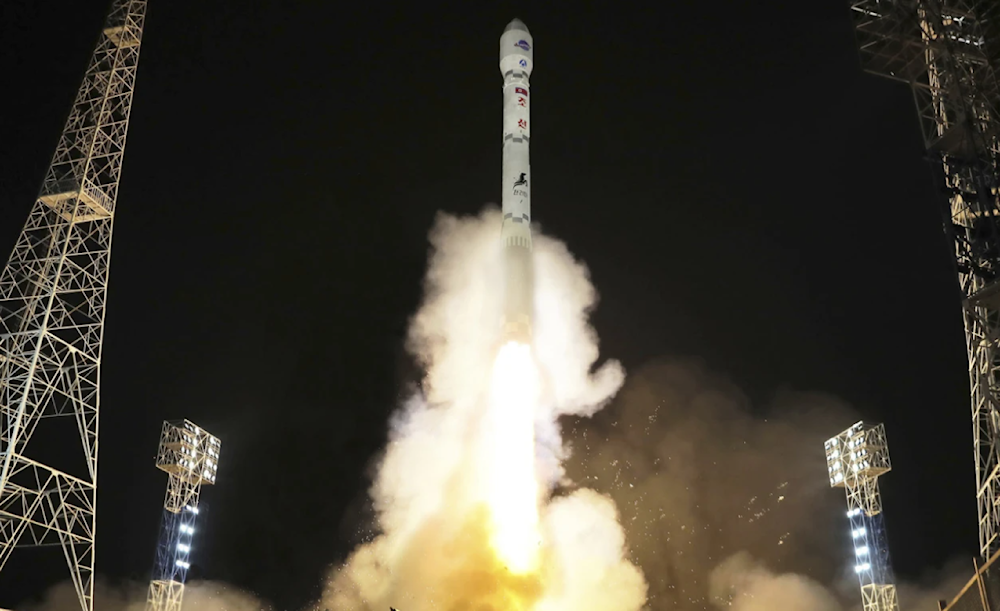DPRK tells UN satellite launch self-defense
This comes as the DPRK said it has already received photographs of important US and South Korean military facilities in the region.
-

The launch of Malligyong-1, a military spy satellite into orbit on November 21, 2023 (Korea News Service via AP)
The DPRK asserted to the United Nations on Monday that the launch of a surveillance satellite constituted lawful self-defense, rejecting US-led condemnation.
Western nations, Japan, and South Korea have accused the DPRK of violating Security Council resolutions by launching the satellite last week.
According to the state-owned Korean Central News Agency (KCNA), Kim Jong Un was informed in detail of the fine-tuning process of the satellite, which was recently put into orbit.
The team at NATA also presented the DPRK leader with photos of "major target areas in the enemy region," KCNA reported, capturing images of targets in South Korea on Friday and targets at the US military base at Pearl Harbor, Hawaii.
AFP said the Malligyong-1 captured photos of the US nuclear-powered aircraft carrier USS Carl Vinson which arrived at the Busan Naval Base on Tuesday.
DPRK's UN envoy, Kim Song, protested that other countries faced no limits on satellites.
Kim said, "No other nation in the world is in the security environment as critical as the DPRK," adding that "one belligerent party, the United States, is threatening us with a nuclear weapon."
He explained that it was the right of the DPRK to "develop, test, manufacture and possess weapons" similar to those the US was developing.
He scoffed at US claims that satellite technology also aided DPRK's missile development, querying whether the US sent satellites into space "with a catapult."
Linda Thomas-Greenfield, the US ambassador, asserted that joint US-South Korean drills were "routine" and "defensive in nature," explaining that the announcing of such exercises in advance is intended to reduce risks.
The US, according to Chinese official Geng Shuang, is "further aggravating tension and confrontation" through its military partnership with South Korea, elaborating that if the security concerns of the DPRK are not solved, the peninsula will be stuck in a "vicious cycle" of aggressive moves.

 2 Min Read
2 Min Read










